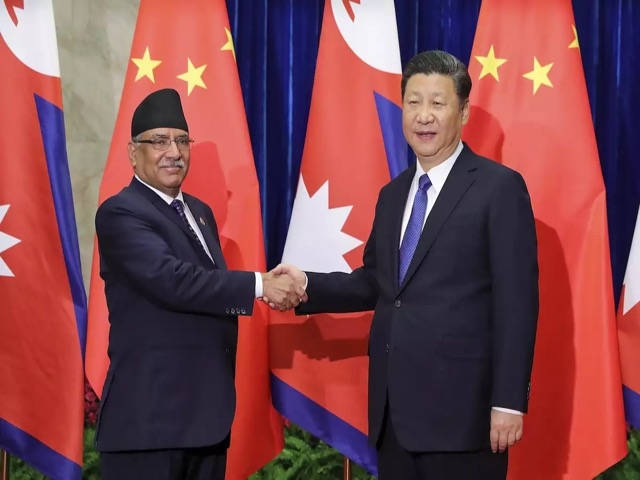China has been trying to get the support of Nepal for its ambitious Belt and Road Initiative (BRI). Still, the Himalayan country is reluctant to join it as it also seeks support from the US and India which oppose Chinese policies, a Kathmandu-based online magazine Epardafas reported.
The Epardafas report claims that Nepal has not yet agreed to enter into BRI but there are still questions that the projects offered by China have offered are really beneficial. However, according to the recent global economic conditions the country where BRI was implemented has established a belief that BRI is a Chinese debt trap.
The inauguration of Pokhara Regional International Airport in August last year is an example of the pressure that China is trying to exert on China. During that time the Acting Chinese Ambassador to Nepal Wang Xin said that the airport was under the BRI plan. However, in reality, the airport was actually built with investments from the Nepal government and the loan investment of a Chinese Export-Import Bank of China (EXIM) bank, according to the Epardafas report.
Just a day before its opening the Chinese Embassy to Nepal tweeted “This [Pokhara airport] is the flagship project of the China-Nepal BRI cooperation.” However, in reality, Nepal had taken a concessional loan of Rs 22 billion for forty years from the Exim Bank of China. Its interest rate is 2.75 per cent per annum. The loan agreement between the Civil Aviation Authority and China’s EXIM Bank was nowhere mentioned in the tweet.
The Epardafas report said that the airport’s work had started before the BRI entered Nepal. In 2012, Nepal and China governments reached an agreement for the airport project. In May 2014, two years before the loan was agreed upon, China CAMC Engineering was given the construction contract, at a time when China’s BRI was in a nascent phase. Chinese President Xi first announced the idea of BRI in 2013 as ‘One Belt, One Road’.
The same report further mentions, while Nepal and China had entered just a framework agreement of BRI which initially had 35 projects to be undertaken, later most of these projects were withheld reducing the number to nine and the Pokhra airport project was not in them.
Leaving the airport project aside China had also put its hands into Damak Industrial Park and Kerung-Kathmandu railway project and they are stranded as the work of these projects has not yet progressed and the work on Damak Industrial Park in Jhapa has not yet begun, according to the same Epardafas report.
According to the agreement for the Jhapa project, the construction period of the park will take ten years and the Chinese will operate the park for 40 years, and then only it will be handed over to Nepal. It is claimed that this project will improve the economic condition of the country, and provide employment for one lakh people, according to the same report.
The same report by Epardafas also mentions that the real purpose of this Jhapa project is to be teasing India by taking the Chinese influence closer to the Indian border. It has been eight years now since the land was acquired for construction of the park named China-Nepal Friendship Industrial Park, Damak, and two years have passed since the foundation stone was laid, but the work has not yet progressed, the same report by the online magazine claimed.
The report by Epardafas further says that the locals of the area are now voicing their dissent as they claim that the price compensation given to them against their land for the park project is very low. Now the same project has become a victim of corruption, compensation disputes, and irresponsibility on the part of the Chinese side, the said locals.
Investment projects like these prove that China is trying to include Nepal in BRI forcibly. Although, this may ultimately create trouble for the country as other diplomatic allies of Nepal like the US and India oppose the policies of China.
This news report is published from a syndicated feed. Except for the headline, the content has not been written or edited by OpIndia staff)
#China #pressuring #reluctant #Nepal #join #BRI #Report
